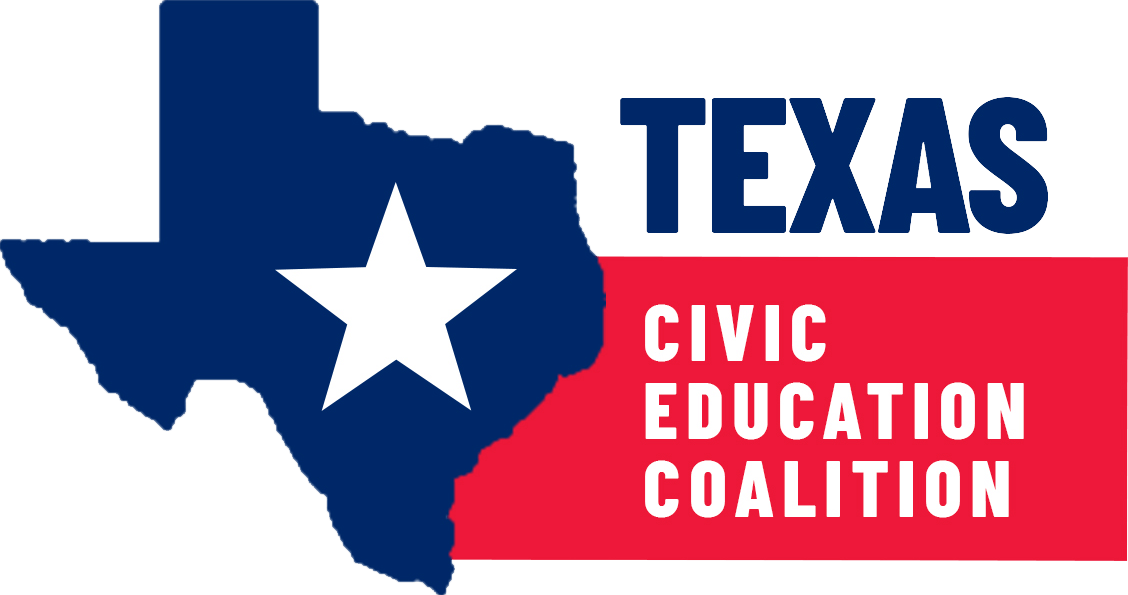The Texas Civic Education Coalition task forces have been hard at work this summer. Below are updates from each task force.
The Legislative Task Force (Chaired by Wendy May – iCivics)
After many months of research and hard work by Texas Civic Education Coalition members, including the Legislative Task Force, we are pleased to share that we have finalized proposed legislation for civic education reform in Texas. The plan remains to file the bill in this upcoming legislative session. We have intentionally removed any additional expenditures in this bill given the current statewide economic constraints brought on largely due to COVID-19. Private entities along with Coalition members have and will be stepping up to provide the professional development opportunities, achievement incentives, and manpower hours for curriculum resource curation, standards consultation, etc.
Recall from our prior coalition meetings and updates that it is not our goal to accomplish the needed civic education reform merely or even primarily through this legislation. Rather, the true change will occur with our ability to influence civic education enhancements and better integration of civics and history standards through the upcoming TEKS revisions as well as motivating school level and individual student civic readiness through the achievement programs We are simultaneously creating. The legislation serves more as a legislative guide and framework to ensure the meatier goals are obtained.
Next week, a separate email will go out to all active coalition members requesting feedback on a confidential draft of the legislation.

Civics Curricular K-12 Content (Chaired by Scott Bush, TSSSA)
Members of the Content and Curriculum Task Force began meeting in May to consider improved integration of civics education into the Texas education standards. The task force consists of Texas social studies teachers and curriculum coordinators working together to conduct a grade level review of the standards. We intend on providing recommendations for improving civic learning within and outside the classroom. Our regular meetings have provided the opportunity to investigate civics education research, which led to the creation of a rubric for conducting the standards review. The survey of elementary and middle school standards has provided great insights for possible avenues of incorporating improved civics opportunities. The high school review is expected to be completed in the fall. Our goal is to produce a summary of recommendations that will inform stakeholders and policymakers as to the best next steps to take.
Individual Student Civics Diploma Seal Program (Chaired by Dodie Kasper, TX State Bar LRE)
Members of the Student Civics Diploma Seal task force have been focused on diversifying their membership, including adding student voices. If you’re interested in joining, please contact Dodie Kasper. They are also planning to coordinate their work with the work accomplished by the School Achievement in Civic Readiness task force.
School Achievement in Civic Readiness (Chaired by Julie Silverbrook, iCivics)
Members of the School Achievement in Civic Readiness task force have completed a comprehensive review of other state school level civic readiness assessment programs, and compiled a list of best practices in recognizing school civic readiness. They are working now to define what it means to be civic ready (work that will be coordinated with the Individual Student Civics Diploma Seal Program task force), and to draft a proposed rubric for acknowledging school civic readiness achievement in Texas.
Texas Community Partnership Task Force (Chaired by Genevieve Kaplan, The Sixth Floor Museum at Dealey Plaza)
The Texas Community Partnership task force is currently looking for members. Members of this task force should include museums and other physical civic or historical sites who support civic learning, and are looking to help enhance civic education in the state. This group will deliver a report on recommendations for leveraging community partners to enhance civic education for K-12 students in Texas.

